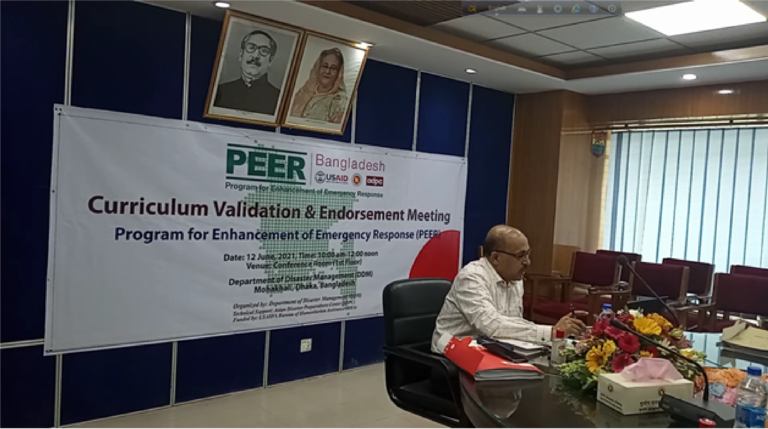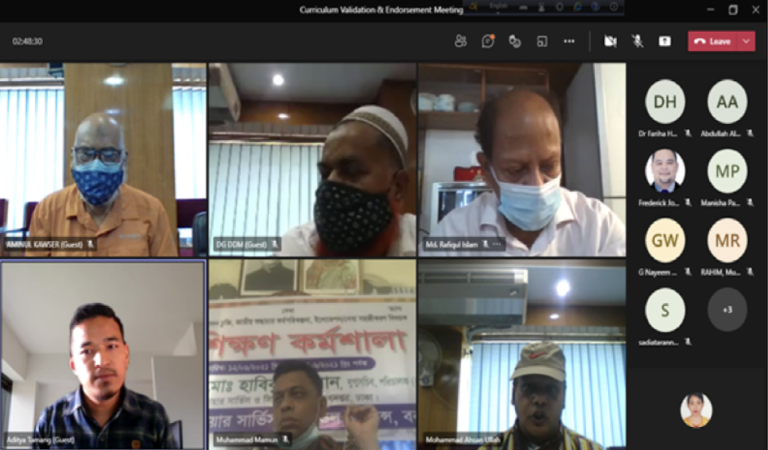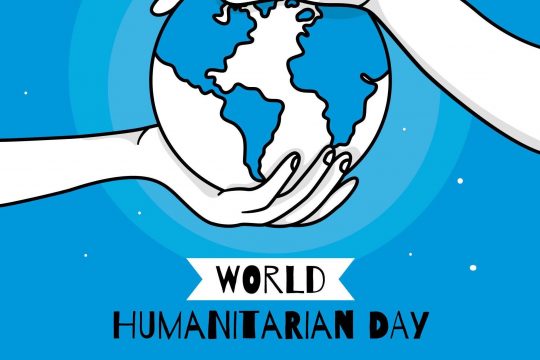The Department of Disaster Management (DDM), Bangladesh with technical support from ADPC organized the ‘PEER Curricula Validation and Endorsement Workshop’ under the Program for Enhancement of Emergency Response (PEER) on 12 June 2021. The meeting’s objective was to share the revisions and changes proposed in the PEER curricula by the Technical Curriculum Review Group (TCRG). Mr. Md. Atiqul Huq- Director-General of DDM and Additional Secretary of MoDMR inaugurated the workshop as the nodal agency of PEER in Bangladesh. The TCRG members presented the reviewed curricula to the National Curriculum Standards Advisory Committee (NCSAC) and members from national technical agencies for feedback and validation.

The meeting included participants from the NCSAC, senior officials from DDM, World Health Organisation (WHO), Catholic Relief Services Bangladesh, BRAC University, TCRG Members, and regional experts from NSET Nepal. TCRG was created in each country to conduct the technical review and revise the PEER training material. The group is headed by a leader who acts as an overall coordinator and a technical coordinator for leading the technical review.

Mr. Giasuddin Ahmed, Director- Vulnerable Group Development (VGD) in DDM shared the revised curriculum, implementation plan for the national curriculum, and roles and responsibilities of key stakeholders in taking it forward. Highlights of the National Scoping Study with recommendations on how to integrate and embed PEER courses in the training institutes and partner agencies as well as national systems were also brainstormed. The country will now work towards developing instructors with the new and improved PEER curricula.
Mr. Abdullah Arif, Deputy Secretary, MoDMR, appreciated the efforts of all the TCRG members in updating the curriculum. Final documents will be submitted to DDM for endorsement and launching at the national level for field-level implementation. Different Agencies and Institutions like DGHS, NIPSOM, FSCD may consider these courses for capacity building and include them in their annual capacity building plan through partial or full funding support.


